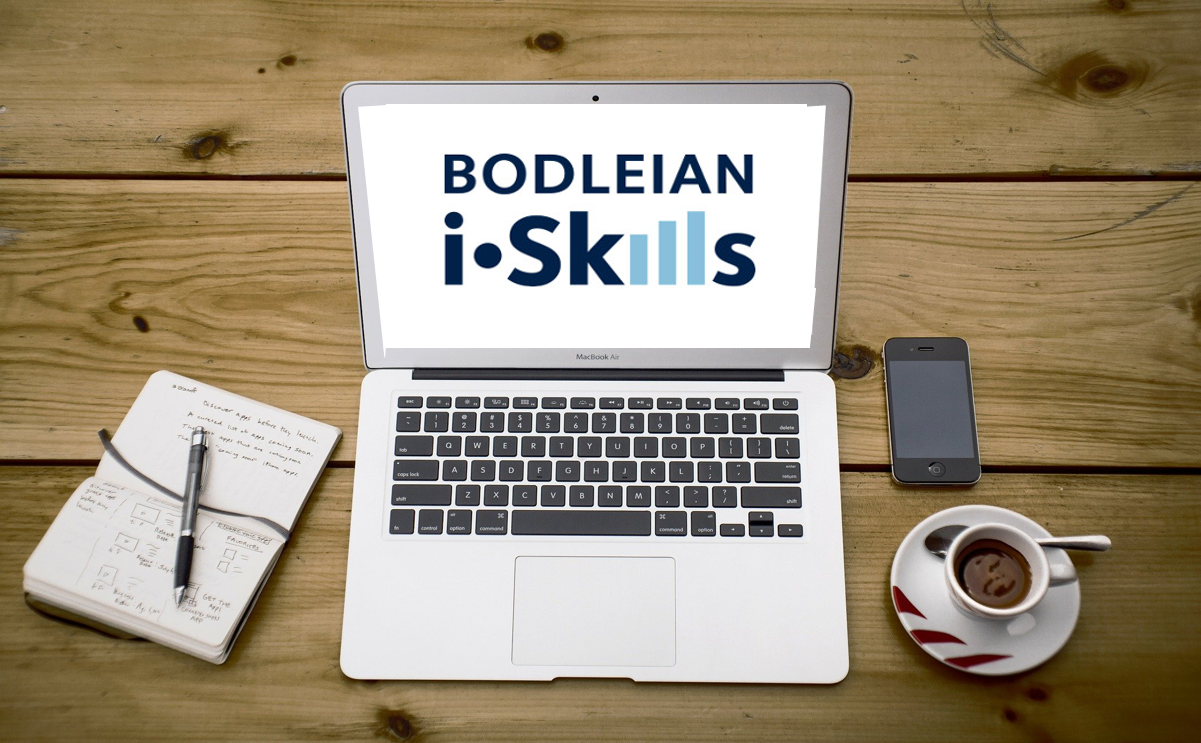 Bodleian iSkills workshops aim to develop your skills in information discovery and scholarly communications, covering a variety of resources across a wide range of disciplines. They are primarily aimed at University of Oxford students and staff. Some workshops take place face-to-face, whilst others are run online.
Bodleian iSkills workshops aim to develop your skills in information discovery and scholarly communications, covering a variety of resources across a wide range of disciplines. They are primarily aimed at University of Oxford students and staff. Some workshops take place face-to-face, whilst others are run online.
The workshops are FREE but online booking is essential. A list of the sessions taking place this term can be found on the iSkills Workshops webpage.
Workshops taking place in 8th Week:
Research metrics and citation analysis tools: Part 1 what makes a journal a “top” journal? (Mon 12th June, 11:00-12:30)
In this session we will cover how to locate and interpret journal level metrics such as the Journal Impact Factor (JIF). We will examine the tools you can use to locate journal level metrics, such as Journal Citation Reports and Scopus Sources. We will also consider the uses, limitations and pitfalls inherent in these metrics and how they can be used responsibly. By the end of the session you will be familiar with: the main journal metrics; using Journal Citation Reports and CiteScore Journal Metrics to find journal impact factors; using Essential Science Indicators to find top research by articles, authors, institutions, countries and journals; and the issues and recommendations for using citation analysis to measure impact.
Who is this session for? Postgraduate students, researchers, academics, research support staff.
Format: Classroom-based (Social Science Library).
Open Scholarship: Logistics of Open Scholarship (Mon 12th June, 14:30-16:00)
The second in a duo of courses (attendees should attend the Fundamentals course prior to Logistics) that will cover the logistics of researching, publishing, and locating open scholarship resources and tools at the University of Oxford. Subjects include: what is the Oxford University Research Archive; depositing work into ORA via Symplectic Elements; depositing data into ORA-data; applying for one of Oxford’s APC block grants; registering or connecting your ORCID; how to be included in the rights retention pilot; and locating and checking funder policies.
Who is this session for? Researchers, other academic staff, administrative staff, library staff, all Oxford students including post-graduate, and members of the OUH Trust.
Format: Online using Microsoft Teams.
Open Scholarship: Foundations of Copyright for Researchers (Tues 13th June, 15:00-16:00)
This workshop will cover the basics of copyright as they apply to researchers at the University of Oxford. It will explain the different types of copyright work that are used or generated in research and the rights and responsibilities for researchers and academic authors in an age of increasingly open scholarship. We will discuss the practical implications of copyright law on the publication process, as well as the production and sharing of research data. We will also cover ownership of copyright, author agreements with publishers and the benefits of signing up to the University of Oxford rights retention pilot.
Who is this session for? Academics, researchers and postgraduate research students.
Format: Online using Microsoft Teams.
Research metrics and citation analysis tools: Part 2 article and researcher metrics (Thurs 15th June, 14:30-16:00)
In this session we will examine article and researcher level metrics. We will discuss how citation counting can help identify influential papers in particular fields and how altmetrics provide a different perspective on research output. Using tools such as Web of Science, Google Scholar and Scopus you will learn how to calculate a researcher h-index. The session will also allow you to appreciate the limitations of different metrics and the importance of their cautious interpretation.
Who is this session for? Postgraduate students, researchers, academics, research support staff.
Format: Classroom-based (Social Science Library).

